Farmer John Writes: What’s Money Got to Do with It?
Harvest Week 6, July 28th – August 3rd, 2020
I suppose this is a good time for a crop update, as we are now transitioning to the peak summer crops. (I confess that I was inspired today to write a very different sort of newsletter—maybe next week.)
Carrots, Celery, Cucumbers, and Fennel
Carrots, celery, cucumbers and fennel are typically scheduled to be available before sweet corn and melons, for the sake of variety and quantity. This year, the fennel, and carrots especially, will be mingling with the first offers of sweet corn and melons. The celery is on the way out. The cucumbers are surging like never before; it would be easy to write that we are swimming in them, but one cannot swim in cucumbers.
Sweet Corn and Melons
The sweet corn is completely fabulous, and the melons will yield perhaps the best ever. (I considered writing that there is a carpet of melons in the fields, but I don’t believe there is such a thing as a carpet of melons.)
Important about watermelons: Your watermelon might have red, orange or yellow flesh. If it has yellow flesh, please don’t dismiss it as unripe. It might even be sweeter than a red melon. Please don’t request watermelons of a specific color from us; we are unable to comply. Also, watermelons are notoriously difficult to harvest at their peak ripeness; we do our best.
Tomatoes, Peppers and Eggplant
Tomatoes, peppers and eggplant are just teasing us at this point—fine, as we already have a lot to harvest. (If you do get tomatoes this week, some of them will be little. Unfortunately, one of the varieties of tomatoes that we planted this year grows smallish tomatoes; we won’t make this mistake again.)
The tomato, pepper, and eggplant fields all slope down to a wet area that refused to dry up this spring after the last three seasons of flooding, so those crops will not be as abundant as they would be otherwise. The upper parts of the fields, which comprises maybe 3/4 of each field, are well drained and therefore are looking good.
Lettuce Lull and Baby Greens Void
I will also note that there is currently a lull in availability of head lettuce. Normally, the impact of such an absence is mitigated by large quantities of baby greens, but not this season. I have often shared that the baby greens have been succumbing to weeds this year again and again. Yesterday, we tried to no avail to weed a field of arugula. The beds were 95% weeds and 5% arugula, with the weeds mostly a canopy over the arugula. I am sure some of you miss our normal arugula offerings, but we have been unable to provide you with one portion of arugula all season, same with mizuna, same with baby choi. No matter how many times we tear the weeds up, obliterate them, pulverize them, they keep springing back way faster than we can extract them from the growing crop.
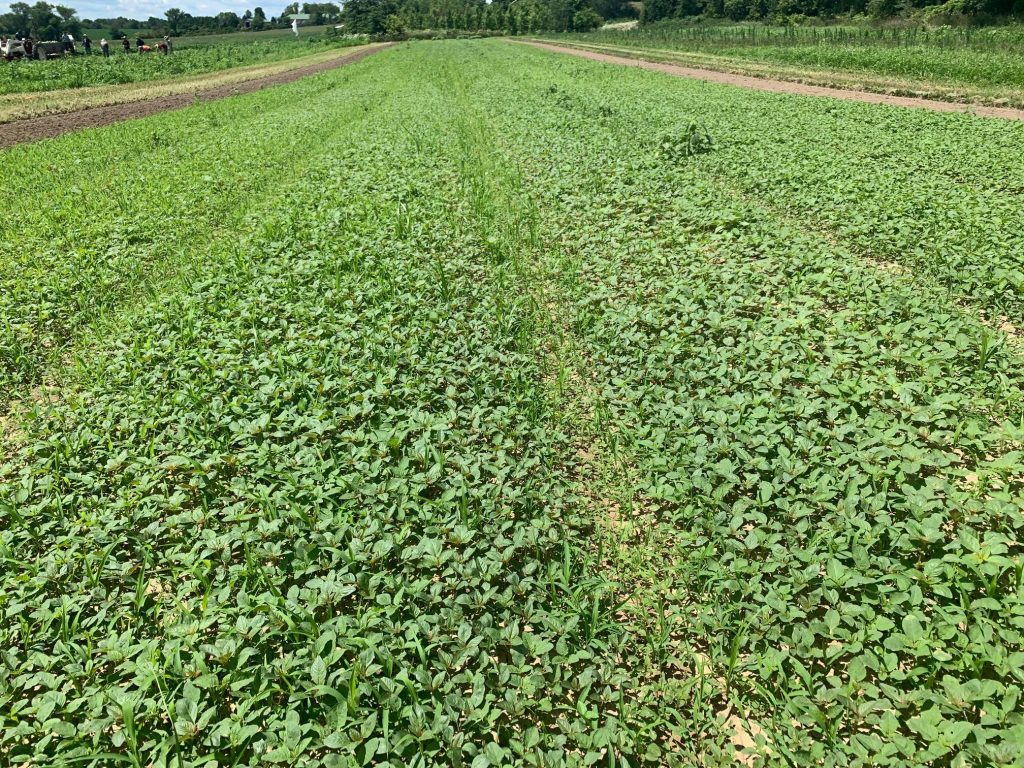
doomed crops (left to right): baby lettuce, cilantro/dill, and arugula —3rd try above; not done trying
Now that the days are getting shorter, the weeds should abate in their growing power, so I keep tearing up weedy beds of baby greens and trying again. The process is called stale seedbedding, in which we till the soil shallow, in order to kill the growing weeds but not bring up weed seeds from further below the surface. It’s a standard way to control weeds on organic farms and it used to work well on our farm.
Bounty
I will point out though, that, in spite of a reduction in variety this season, we have been more than making up for the losses though the tremendous yields of other crops. My preference is to give you a lot of some crops than a small amount of more crops. Your farm has been generating an astounding abundance of food this year, just not as varied as usual.
Weeds Again
Back to the weeds: I estimate that we are devoting ten times more labor to weeding this year than we devoted to our average weeding effort over the past 20 years. The soil chemistry or biology changed with the flooding, and we have been confronting the impacts of past weather in the form of weeds day after day this year. Some people like to say “live in the moment; the past is the past.” For weeds on our farm, the past is the present.
Water
We have finally installed our overhead irrigation system. We normally install it in June, but this year, the rains have been timely enough so we did not need it until now. For the next several weeks—late July and August—it is not provident to rely on timely rains.
Weather and Wealth
We modern humans have an impulse to monetize—monetize good will, monetize a brand, monetize social life, monetize hospitality, health, farmland, entertainment, and religion. Even life itself today is often monetized: an internet search just suggested that one human life is worth about US$10 million.
Although I am reluctant to do so, I do notice that timely rains and timely sunshine are something like capital, providing for more bountiful crops.
Rudolf Steiner suggested organizing society more or less into three categories, one of which is economic life; the other two are the cultural and the rights life. Unfortunately, the economic life dominates the cultural and rights life today; hence, I can see rain as money. But then, food is at the basis of life, so maybe the way to see rain is as sustenance or survival or life itself. However we view it, weather is still the source of life.
The Stealth of Wealth
It’s hard to not monetize a tractor repair. Our main tractor blew a head gasket last week and probably needs a new head. The whole repair will probably cost $10,000 to $12,000. (Just in case you wonder, a new replacement John Deere tractor the size of ours is about $225,000 today. Try to run a farm and to not monetize the cost of a tractor.)
In the meantime, we are leasing a replacement tractor, because the farm work has to be done, always, no matter what.
Shareholders Weigh In
Shareholders have been posting comments here on our blog like never before, especially on the topic of share customization. Please weigh in yourself if you are inclined.
Warmly,
Farmer John
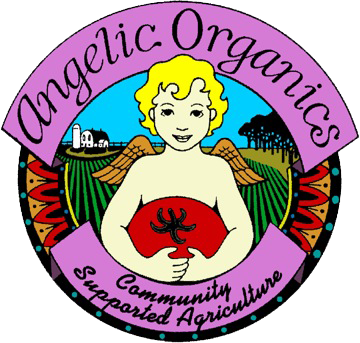
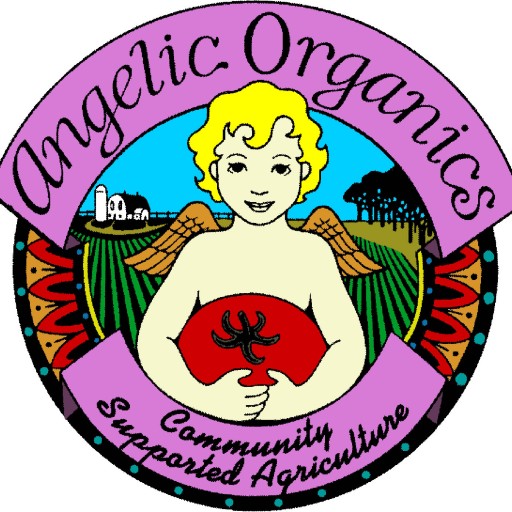
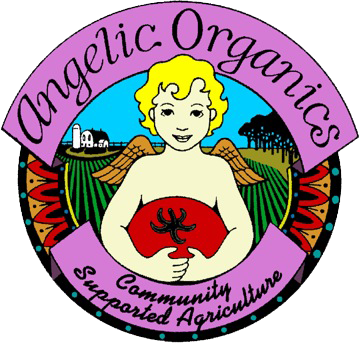
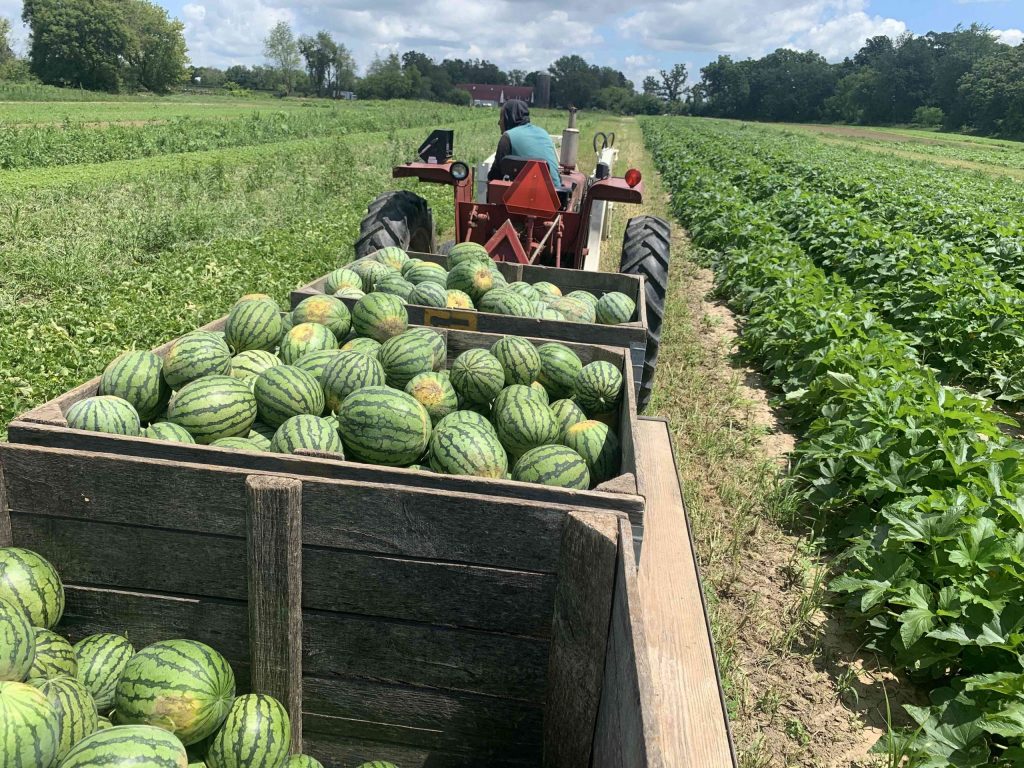
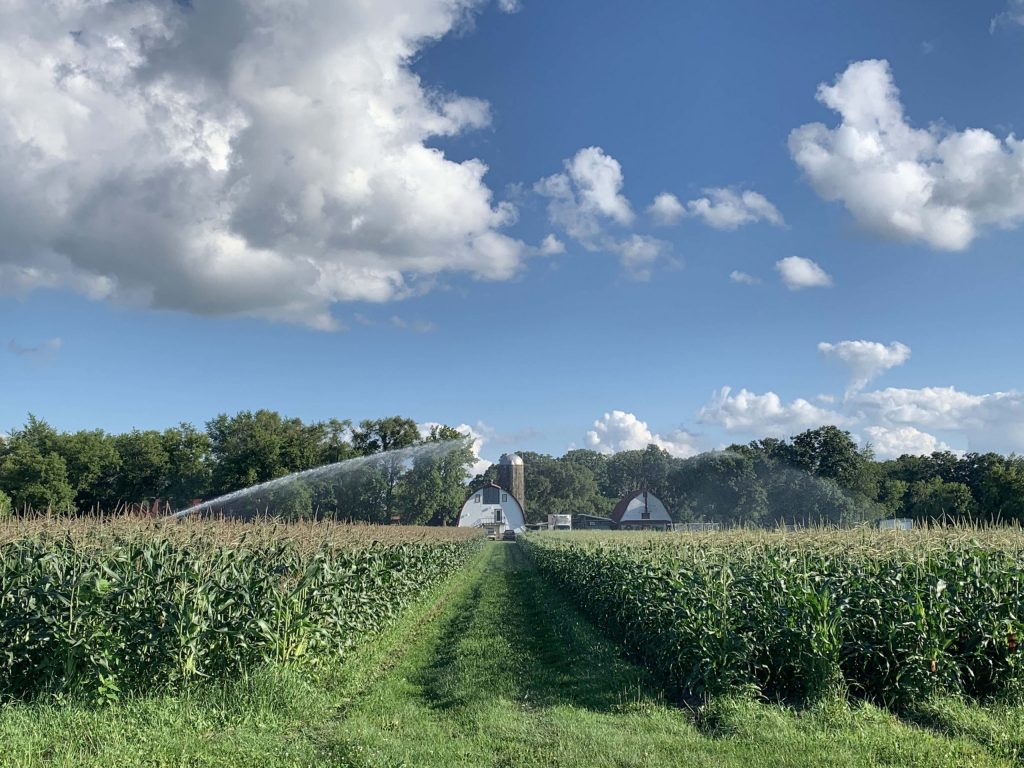

Very interesting, well-written newsletter, John. I enjoyed reading it.
I suspect you have earned all the rips in your wardrobe, Mary Jane.
I hope all the comments you receive are positive. While it is true that it is “my farm” as much as it is yours, you obviously invest more, including time, labor, planning, and mental and emotional energy. I can only imagine the Herculean effort it takes to individually prepare each of those boxes based on our preferences, swaps and individual purchases. So thank you!! Thank you from our house to your farm.
We have finally managed to rein in the customization process enough so it does not dominate our farm. It’s stil a lengthy, detailed process, though it oddly does not interfere much with harvesting. It ends up just generating a specific number of items to harvest. The real drawdown is administrative, determining what crops we can provide and then getting the customization choices from our shareholders, then printing labels, then labeling boxes…so it’s more extra office work and routine labeling work and more careful packing than it is extra work in the fields.
yup. It’s not about the money, but its about the money. LOL!
Peace
Barb
Perfect, Barb.
I LOVE the customization at the beginning where I can set my preferences – for example, I hate cilantro with a passion so I’m really appreciative I won’t be getting any! However, I don’t think that the customization a few days before is necessary. Maybe a system where you just “opt out” of something would be sufficient.
On another note, I just received my share today and already cut up the melon – absolutely perfect.
Being practical, Anna, I have often wondered why the customization process Harvie offers is so granular, morphing from what shareholders like overall to what they want in their next box, which might exclude what they like overall. But then, people’s needs and wants can vary from week to week. Simple answers are elusive to this farmer.
Hello Farmer John and Faithful Crews-
THANK YOU. For everything, your work, your love and labor, this priceless connection to our food. I have been a shareholder since 1994. When my children (now all adults!) were young I made sure to bring them to the farm. I even brought my Girl Scout troop to a Women in Farming workshop in the late 1990’s.
I have always shared the box and have had many different box partners. The social aspect of sharing, communicating weekly about what’s in the box, seeing each other and others at the pick up site (now with masks) is a lovely part of the routine of being part of a CSA. It brings me closer to friends whom I see more often in the summer because we share an Angelic Organics box.
My current box partner (of 5 years) and I both appreciate the customization, very much. We are wasting less food, bottom line.
I agree with Anna, above, that the “general”, start of the season customization is enough. We don’t need the weekly update and aren’t even taking advantage of it very often.
Sarah, You are a most ideal shareholder. I loved every word you wrote.
Hi!
Just a belated vote for the benefits of customization. I eat everything, cook all the time, have a very small garden, and live alone. I get a half share, and it can last a week and a half for me, which is amazing. Customization creates value for me, because I don’t need to give away cucumbers I know I won’t get to, and I don’t have to throw away the 4th head of lettuce from my share because the neighbors don’t like anything except iceberg. Instead, I can choose a head of cabbage over a head of lettuce, and know I can eat it 10 days later.
Also I wonder if people on restricted diets would be disadvantaged if they can’t avoid certain items? I’m thinking of friends who have to be low potassium, and can’t eat tomatoes, etc. Maybe there could be an add-on for customization?
Thanks for everything, the food is gorgeous! E
You make a lot of good points, Ellen. Thank you.
I wish you luck on fixing the tractor. Thank you for doing the good work that you do and keeping us abreast of how life runs on a farm. I appreciate knowing why I may not be getting as much eggplant or peppers. Hope you and the family are keeping well and safe during these unprecedented times.
Take care:)
It turns out the tractor repair will only be a few thousand dollars vs the several thousand I was anticipating. Subtract a few thousand from several thousand and the difference is not exactly a windfall, but at least a bit of relief. I like that you are interested in the farm, Chandini. I am sure the farm itself also appreciates your interest.
This is my first year with you and the farm and I just wanted to drop a note to say how much I appreciate the effort, love and intellect that goes into the share I get every couple of weeks. I had friends who were shareholders in the early ’00s and I never felt I would make the most of it like they did – they were better and regular cooks, and I traveled for my job so often, I knew it would never make sense.
Enter COVID19. I have cooked more in the last four months – and taken more chances, tried new methods, learned new skills – than I ever would have expected. The share (and my every other week fruit share) are perfect for me (even though I know you had hoped for another option for the fruit this year). I’m reaching for healthier options more often (a goal of joining); and cooking with my ingredients daily.
Thank you for sharing the goings on at the farm, and for everything you and the team do. It’s one of the best parts of my year, and I’m grateful.
This is very special from you, Sallie. I like that you were brave enough to give yourself over to cooking recently, to discovering and learning–super. Thank you so much for your enthusiastic post.
Dear Farmer John,
Thanks for all you and everyone on the farm does. I love my box of veggies every week. I agree with some of the posts that I like the customization, but don’t need it weekly. However, when I saw how much it costs the farm to customize, I would happily skip that part. Of course, this year there’s no swap box, but that worked well in the past.
Karen
Thank you for your judicious comments, Karen.
Thanks for urging us to read this online – love the engagement you’re getting here! I usually read our hard copy of Farm News on pickup day – today I did so while enjoying our perfectly ripe yellow-orange watermelon. My partner made a quick salad of it with cucumber, lime, a little olive oil, and fresh basil. Thanks for all you do!
It’s quite interesting to read what shareholders have to say this season. They are posting like never before. Thanks for hopping on to the internet to read Farm News.
This is our 75th year of getting farm vegetables. We are loving the abundant but smaller selection in our box this year. But mostly, I love not having to decide! We figure out how to eat whatever you send and that is a good thing.
Not sure if you mean you have been getting vegetables from farms for 75 years, or if 75 is a typo and you mean you have been getting vegetables from our farm for 25 years. Either way, that’s a lot of vegetables. Thank you for being part of our farm.
Dear Farmer John,
Thank for you the weekly newsletter and the invitation to weigh in on customization. We’re really enjoying the CSA so far (our first year). We love trying and cooking new things and following the rhythms of the season, but we do enjoy the option to customize. This is mostly because we have a home garden, so we value the opportunity to swap things out based on what’s happening there. For example, this week our cucumbers started being ready to eat, so we swapped that out of the box. Before that, we had a basil plant explosion, so swapped that out for something we weren’t growing ourselves.
Thank you for all you do.
Best,
Jessi
Good to read about why customization works for you. Thank you.
I prefer customization. Basil is the only herb and delicata is the only squash for me. In the past, other herbs and winter squashes often ended up in the yard. No more waste with customization.
Thank you, LW. More basil coming soon.
I have been a shareholder since 2001 and I love customization. There are only two items (anise hyssop and pea shoots) that I don’t take so I certainly like diversity. Customization just makes it so much easier to plan the meals I want to make on any given week. I miss tetragonia, parsnips and rutabaga that the farm no longer grows. I mourn the loss of spinach to weeds. I would like to make the case for greater diversity. Perhaps the farm could grow collard greens, escarole (so essential in Italian soups), tomatillos (needed in Mexican cooking) or okra. With customization the farm would know how much to plant based on shareholder interest in the new item. I love Angelic Organics produce and can’t imagine cooking without it.
Sorry for the late reply. You have quite the memory of crops we used to raise. (I had actually forgotten about tetragonia.) Your request for greater diversity makes me picture so much that we already grow, and the attendant challenges. However, I still like the prospect of expanding our offerings. But then, I think of the helter-skelter activities here that we are already engaging in, managing so many current crops, and weather, and crew, and equipment. Turnips and rutabaga almost always disappointed from a yield standpoint–not sure why, but I just noticed shortfalls year after year. Anyway, I’ll consider your suggestions, mindful that, besides adding to the diversity, they will add to the complexity.